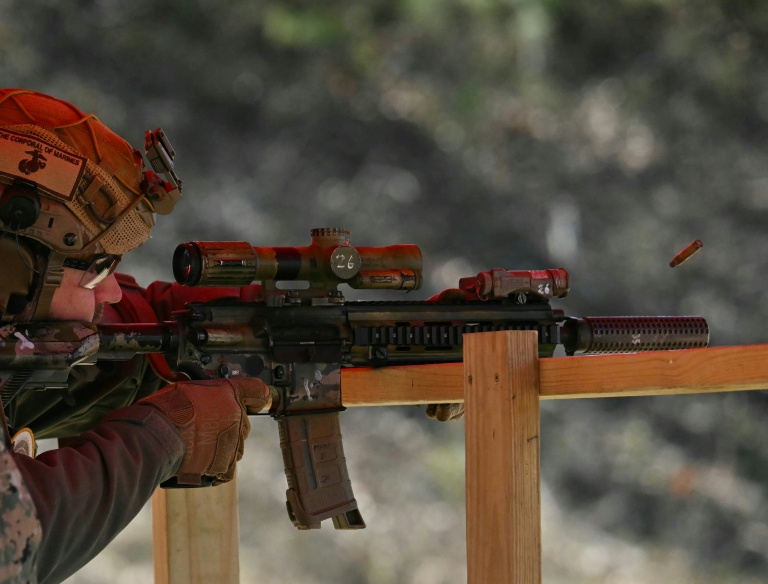Washington (AFP) – The bloody Middle East conflict triggered by a Hamas attack on Israel last weekend has sparked angry disputes at some of most prestigious universities in the United States, which are both training grounds for future American leaders and sometimes hotbeds of activism.
At Harvard, Stanford and New York University (NYU), bitter clashes involving students, professors and administrators have blown up into viral debates on social media, with echoes in the political and media worlds.
In at least a few cases, people’s stances on the conflict have cost them job offers — or led to threats of violence.
At Harvard, a statement signed by several student groups sparked an explosive response.
The text said that the students “hold the Israeli regime entirely responsible for all unfolding violence”; that the recent events “did not occur in a vacuum”; and that “Israeli violence has structured every aspect of Palestinian existence for 75 years.”
– ‘Moral cowardice’ –
That drew a caustic reaction from Lawrence Summers, who is not only a former US Treasury Secretary but the former president of Harvard.
“I am sickened,” and not just by the students’ statement but by “the silence from Harvard’s leadership,” he said on X, the former Twitter.
This left Harvard looking “at best neutral towards acts of terror against the Jewish state of Israel,” Summers said.
Jake Auchincloss, a Democratic member of Congress from Massachusetts, said on social media that he was “ashamed” of his alma mater, calling the Harvard students’ statement “morally depraved” and accusing university leaders of displaying “moral cowardice.”
Without referring to the letter or Harvard specifically, former US president and current Republican frontrunner for the 2024 nomination Donald Trump accused “American Universities” of “allowing or enabling the open hatred against Israel and America” in a post on Truth Social.
University officials did publish a statement of their own, but an avalanche of criticism prompted Harvard president Claudine Gay to issue a second statement.
“Let there be no doubt that I condemn the terrorist atrocities perpetrated by Hamas,” she said.”Such inhumanity is abhorrent.”
Amid the furious reaction, a list of the groups that had signed the students’ statement was deleted — “for student safety,” a later posting said.
Some of the groups’ members had fallen victim to “doxxing,” having their personal information posted on the internet without consent.And a vehicle driving near campus carried a large screen displaying names and photos under the title: “Harvard’s leading anti-Semites.”
Certain of the pro-Palestinian groups withdrew their signatures, according to the Harvard Crimson, the student newspaper, with some students even disavowing the text.
That may have come too late: On X, businessman Bill Ackman wrote that some CEOs were demanding that the names of all signers be made public — to ensure that none of the executives’ companies ever hire them.
– Uneasy times –
At NYU, after the president of the Student Bar Association declared that “Israel bears full responsibility for this tremendous loss of life,” the law firm of Winston & Strawn withdrew a job offer made to them earlier.
Meantime, on the West Coast, administrators at prestigious Stanford University came under fire for refusing to condemn protesters’ pro-Palestinian banners.
School leaders said that students were free to express their “constitutionally protected” opinions, and that the banners did not cross the legal line into threatening speech.
Back in the East, students at Georgetown University in Washington wrote the school’s president to castigate him over his “long silence on Palestinian suffering.”
And a petition calling for the firing of a Yale professor who had referred to Israel as a “murderous, genocidal settler state” quickly drew close to 45,000 signatures.
Against this tense backdrop, students on both sides of the issue say they feel uneasy.
“We have so many Jewish students feeling threatened,” something that “they’ve never experienced before,” Jillian Lederman, president of Brown (University) Students for Israel, told CNN.
And a Palestinian student at Harvard, who declined to give his name, told ABC News that “it’s a really, really scary time to be Palestinian…in an environment that is so hostile.”
Harvard announced this week that university police were protectively stepping up their presence on campus.




